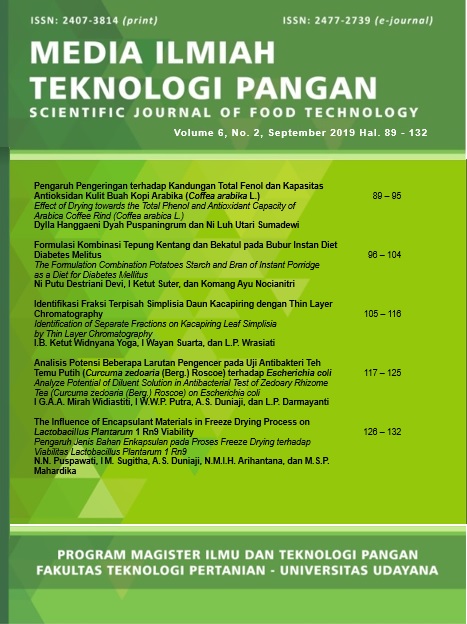Analyze Potential of Diluent Solution in Antibacterial Test of Zedoary Rhizome Tea (Curcuma zedoaria (Berg.) Roscoe) on Escherichia coli
Abstract
Diluent solution in microbiology analysis has a very important role in obtaining samples with the best number of microbes that can be counted from 30 to 300 colonies. Waste of air conditioner (AC) water which has not been utilized optimally has potential as a diluent solution. The purpose of this study was to determine the potential waste of AC water as an alternative diluent solution compared to some diluent solutions in the antibacterial test of Zedoary Rhizome tea against Escherichia coli (E. coli). Analysis potential of diluent solution using the plate count method, then used as a diluent solution in the anti-bacterial test of Zedoary Rhizome tea against E. coli ATCC 25922 by contact method for 24 hours and cell quantity was calculated by hemocytometer. This study used RAL with 4 treatment levels of diluent solution, namely: AC water, Pepton Water (PW 0.1%), physiological salts (0.85% NaCl) and demineralized aquades (Aq DM). The results showed that AC water thinners had a significant effect with PW and Aq DM diluents seen from the highest average E. coli cell value of 2.6 x 108 CFU/ml obtained in AC water thinners and the smallest value of 1.3 x 108 CFU/ml of Aq DM diluents. Tests of pH showed a 0.85% NaCl diluent solution of 6.95 was significantly affected by other diluent solutions. Antibacterial test showed that treat waste of AC water diluent had a significant effect with other diluents with an inhibition value of 60.81% and said to be bacteriostatic.








